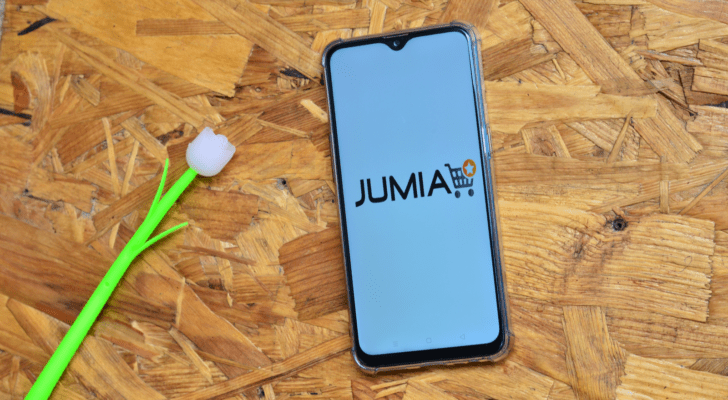Introduction.
So, you’ve been thinking about selling on Jumia, but there’s just one small problem—you don’t live in Lagos.
Maybe you’re in Ibadan, Port Harcourt, Kano, or even a smaller town. You’ve seen people talk about how they’re making steady sales on Jumia, but when you try to register or deliver products, it feels like everything is Lagos-focused. Don’t worry, I’ve been there—and you’re not alone.
Selling on Jumia outside Lagos is very possible. In fact, more and more sellers are doing it successfully every day.
The key is understanding how the platform works, knowing the best way to set up your logistics, and being smart about inventory and delivery.
This guide will walk you through everything you need to know. I’ll keep it real, no tech talk, no confusing steps—just the important stuff, explained in a way that actually makes sense.
Why Jumia Is Worth Your Time (Even If You’re Not In Lagos)
Jumia is one of the biggest online marketplaces in Africa. In Nigeria alone, it pulls in millions of visitors each month, and a huge number of those people are ready to buy. That means if you’ve got the right product, priced fairly, with a smooth delivery system—you’ve got a shot at making real money.
The good news? You don’t need to be based in Lagos to sell. You just need to set things up the right way.
How Do I Sell On Jumia Outside Lagos?
1. Open Your Jumia Seller Account
This part is simple. Just go to the Jumia Seller Center and sign up.
You’ll need:
A valid email
Your phone number
Your business name (can be your name too)
Bank account details
Valid ID (like your National ID or driver’s license)
2. List Your Products
Once you’re signed up, you can start uploading your products. Take clear photos, write short but honest descriptions, and set fair prices.
Pro tip: Jumia buyers love good deals, but they also look at reviews. So, quality matters.
If you’re not sure what kind of products to sell, check out the Jumia Best Sellers List on their site or app to see what’s trending.
3. Understand Jumia’s Logistics Model (Jumia Express vs. Drop-Off)
This is where things get real.
There are two main ways to get your products to customers on Jumia:
Option A: Jumia Express (For Those Who Can Send Inventory to Lagos or Abuja)
With Jumia Express, you send your items to a Jumia warehouse. They store it and handle everything—packaging, shipping, customer service, and returns.
This is great for sellers who can afford to ship bulk items to Jumia’s warehouse in Lagos, Abuja, or Port Harcourt.
But what if you’re not close to any of these hubs?
Option B: Jumia Drop-Off (The Best Option If You’re Outside Lagos)
Jumia has multiple drop-off stations across Nigeria, not just Lagos.
Here’s what you do:
When someone orders your product, you get notified.
You package the item yourself.
You drop it off at the nearest Jumia Drop-Off Station (they’ll send you the address).
Jumia handles the delivery from there.
To check where your closest drop-off station is, go to this page and find your city.
4. Use Local Courier Services (If Drop-Offs Are Too Far)
If the nearest drop-off point is still too far, you can use a local courier like GIG Logistics, Kwik, or any other that works in your town. They’ll help you move the product to Jumia’s warehouse or drop-off center.
This adds a small cost, but it’s often worth it if you’re serious about selling.
Tips To Succeed As A Seller Outside Lagos
Keep Your Products In Stock
Since you’re not in Lagos, delays can happen. Always keep a few extra items ready to go. That way, when orders come in, you’re not scrambling.
Communicate With Customers
Sometimes customers may want more details before buying. Reply to their questions quickly. It builds trust.
Don’t Underprice Just To Get Sales
Remember, Jumia will charge you a commission (usually between 5% and 15%, depending on the category). So make sure your prices cover costs, delivery, and your profit.
Check the latest commission rates here
Learn From Other Sellers
Join online forums, Facebook groups, or even the Jumia Seller Facebook Page. People share real-life experiences there. It’s a goldmine of tips.
FAQs
Can I sell on Jumia if I live in a rural area?
Yes, you can. It might take a little more work to figure out logistics, but as long as you can get your product to a drop-off point or courier, you’re good.
What kind of products sell best on Jumia?
Electronics, fashion, beauty products, home appliances, and phone accessories are hot categories. But really, any product with demand can sell if priced right and delivered fast.
Do I need a registered business to sell on Jumia?
Nope. You can start as an individual. But as your business grows, it’s smart to register your brand for more trust and access to business tools.
How do I get paid?
Jumia pays sellers every week (usually Mondays) into your registered bank account, after confirming successful deliveries and returns.
What If I Want To Scale My Business?
Here’s how to grow:
Stock multiple products so customers have more options.
Promote your store on social media—Instagram and Facebook are great for this.
Use Jumia Ads (paid feature) to boost visibility.
Start slow, but be consistent. A few orders today can turn into 50+ monthly sales if you stick with it.
Helpful Resources
Jumia Seller University – Free tutorials and training for new sellers
Jumia Seller Support: Call 01-888-1100 or email [email protected]
Final Thoughts
Selling on Jumia from outside Lagos isn’t hard—it just takes a little extra planning. Once you figure out the best way to move your products, it becomes part of your routine. I know sellers in places like Uyo and Ilorin who are killing it just by staying consistent and keeping their customers happy.
You don’t need to be in the big city to succeed online. You just need good products, a little patience, and the right information.
So, what’s stopping you from becoming a successful Jumia seller from your own city?





GIPHY App Key not set. Please check settings